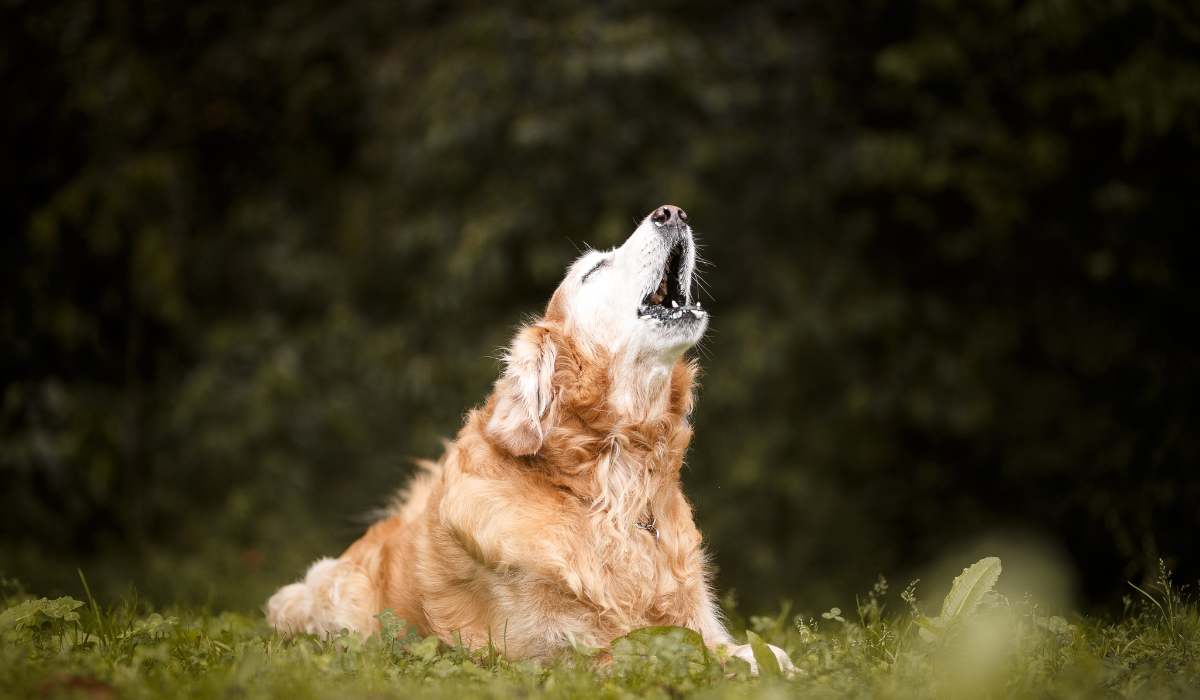Why do Dogs Howl in their Sleep

Have you ever heard your furry companion howling in their sleep? It’s quite a common occurrence among dogs, but have you ever wondered why they do it? We’ll explore the reasons why dogs howl in their sleep and what it means for their overall health and well-being. When it comes to dogs howling in their sleep, it’s important to understand that this is a common occurrence and can be attributed to various factors. One of the most common reasons is instinctual behavior.
Understanding Sleep Cycles in Dogs
Before we dive into the reasons why dogs howl in their sleep, it’s essential to understand the sleep cycle of a dog. Dogs have similar sleep cycles to humans, with two distinct stages: Rapid Eye Movement (REM) and non-REM. During REM sleep, dogs may twitch, move their eyes, and even vocalize. Non-REM sleep is a deeper sleep, and dogs are less likely to move or vocalize during this stage.
Instinctual Behavior
One of the most common reasons why dogs howl in their sleep is instinctual behavior. Dogs are descendants of wolves, and howling is an inherent behavior that has been passed down through generations. In the wild, wolves howl to communicate with their pack members, and it’s likely that dogs do the same in their sleep.
Dreaming
Dogs have complex dreams just like humans, and during their REM sleep, they may act out their dreams, including howling. While we can’t be sure what dogs dream about, it’s possible that they’re dreaming about chasing prey or communicating with other dogs, leading them to howl in their sleep.
Anxiety or Stress
In some cases, dogs may howl in their sleep due to anxiety or stress. This is more common in rescue dogs or those who have experienced trauma in the past. If your dog is howling in their sleep regularly, it’s essential to monitor their behavior during the day and speak to your veterinarian to rule out any underlying health issues.
Medical Conditions
In some instances, dogs may howl in their sleep due to underlying medical conditions such as pain, cognitive dysfunction, or even hearing loss. If your dog is howling in their sleep more frequently, it’s essential to consult with your veterinarian to rule out any health issues.
How to Help Your Dog
If your dog is howling in their sleep, it’s essential to monitor their behavior and ensure that they’re getting adequate sleep. Creating a comfortable sleeping environment, such as a cozy bed, can help your dog feel more relaxed and secure. Additionally, providing plenty of exercise and mental stimulation during the day can help reduce any anxiety or stress your dog may be experiencing.
Managing Your Dog’s Sleep Howling
If your dog’s sleep howling is becoming disruptive or concerning, there are several things you can do to manage the behavior.
- Create a Calm Sleeping Environment
Dogs are sensitive to their surroundings, and a stressful or noisy environment can make it more difficult for them to relax and sleep soundly. Make sure your dog’s sleeping area is quiet, comfortable, and free from distractions.
- Stick to a Consistent Sleep Schedule
Dogs thrive on routine, and sticking to a consistent sleep schedule can help them establish healthy sleep patterns. Make sure your dog gets plenty of exercise during the day and has a consistent bedtime routine to help them wind down at night.
- Consider Crate Training
Crate training can be an effective way to provide your dog with a safe and secure sleeping environment. Dogs who feel comfortable in their crate may be less likely to howl in their sleep.
- Consult with a Professional
If your dog’s sleep howling is becoming a major issue, it may be helpful to consult with a professional dog trainer or behaviorist. They can provide you with personalized tips and strategies for managing the behavior.
Conclusion
It’s also worth noting that some dog breeds are more prone to howling than others. For example, breeds like Siberian Huskies and Alaskan Malamutes are known for their howling abilities and may be more likely to howl in their sleep. However, any breed of dog can howl in their sleep, and it’s not necessarily a cause for concern. If you do notice your dog howling in their sleep, there are a few things you can do to help. First, try not to wake them up abruptly. This can startle them and make them feel anxious.
RECENT ARTICLES
